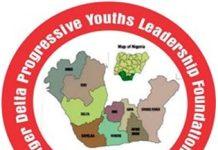
The Niger Delta Presidential Amnesty Programme (PAP), after its establishment in 2009 by the late President Musa Yar’Adua, has under gone series of evolution which had yielded positive results at resolving the unrest in the volatile oil producing environment and consequent improvement of the nation’s economy.
Recall that, on the assumption of office of Yar’Adua as President on May 29, 2007, there were threats to lives and property as a result of the activities of militant groups in the Niger Delta. These threats bordered not only on the people of the region, but also on the oil producing companies and the Nigerian state as a whole.
More importantly, militants in the region were constantly involved in killings, kidnappings, hostage-takings, destruction of oil installations and facilities, and confrontations with law enforcement agencies. Their action affected oil production in Nigeria to the extent that, on a particular day in 2008, Nigeria was only able to produce only 700,000 barrels of crude.
Thus, in order to restore peace to the region, Yar’Adua introduced PAP by granting amnesty to restive youths and purging them of all records of accusation, trial, conviction, imprisonment and granted them the opportunity of starting life on a clean slate.
To achieve its objectives, government introduced disarmament, demobilisation, rehabilitation and sustainable reintegration.
Since the establishment of the programme, it has evolved from demobilization, which is disarming the youths of weapons of destruction, to rehabilitation and finally sustainable reintegration.
Currently, the programme is in the reintegration phase which largely entails providing the restive youths with either vocational training or formal education. Of course, there is also the re-insertion part of reintegration which entails adding processes of returning already trained ex-agitators to civil society. The quickest way to achieve this is through provision of jobs to already trained delegates. But, unfortunately, the situation of the country has changed with many of the educated youths being unemployed.
The good news, however, is that, after twelve years, PAP, to a large extent, has created a remarkable improvement in the Niger Delta from what it was and what it is now.
It has stopped incessant attacks and sabotage of oil facilities which resulted in the restoration of peace to the region. This has made it possible for the Federal Government to have a free flow of oil thereby increasing revenues. And Nigeria has been able to attain the Organisation of Petroleum Exporting Countries, OPEC, quota of 2.2 million barrels of crude per day compared to the production of 700,000 barrels per day in the pre-2009 period.
As for training and education, it is on record that the programme has trained no fewer than 30,000 people who agreed to lay down their arms.
It is also on record that these trainees have been educated and given vocational skills in various fields.
Besides, there is evidence that no fewer than 1,050 of the ex-agitators have so far graduated from the programme, while no fewer than thirteen of them have studied up to the PhD level.
The programme has equally trained several pilots, lawyers, engineers, welders and the likes.
Despite that the programme has achieved relative successes in the aforementioned areas, a lot still has to be done in their reintegration. After training, the youths need to be effectively absorbed and reintegrated into the society by keeping them busy so as to erase the mentality of hostility from their thoughts.
Like I earlier explained, in the earlier stages of the PAP scheme, ex-agitators were trained in skilled within the oil and gas sector, some sent abroad for educational programmes and some within the Nigerian university system to acquire quality education. But with the challenge of high unemployment and limited job opportunities in the formal sectors, PAP proactively designed schemes to make the ex-agitators economically self-sufficient.
Among such scheme is the Refresher Training and Empowerment in Commodity Shop. Commodity Shop is a scheme where the ex-agitators are trained to manage small/medium scale enterprises (MSMEs). These MSMEs are focused on trading in Fast Moving Consumers Goods (FMCG) wherein the ex-agitators can be gainfully employed and equally be employers of labor.
Consequently, a company, Omerald Limited, under the leadership of seasoned vendors, was engaged to train and empower 43 ex-agitators in Delta and Rivers states. For seven days, these ex-agitators were trained by experienced business managers on operating FMCG business in Port Harcourt and Warri.
After exhaustive training and mentorship, the ex-agitators were provided starter pack in form of cash to rent shops in their local communities. Thereafter the vendors, alongside representatives of PAP, would convey goods to each of the delegates at their rented shops.
My candid advice is that the FMCG should be sustained because it will take majority of PAP trainees out of the streets of the Niger Delta by making them managers of their own businesses and subsequently employers of labor.
The long term effect is that it will keep idle Niger Delta youths busy and reduce the rate of crime in the region and create peaceful atmosphere not only for those in the region but also give corporate organizations operating in the Niger Delta an opportunity to do their business in a peaceful environment.
…Oyibocha-Agbajoh, a legal practitioner, lives in Abuja
Kindly contact us @ Naijalivetv@gmail.com
Call or Whatsapp: 07035262029, 07016666694, 08129340000










